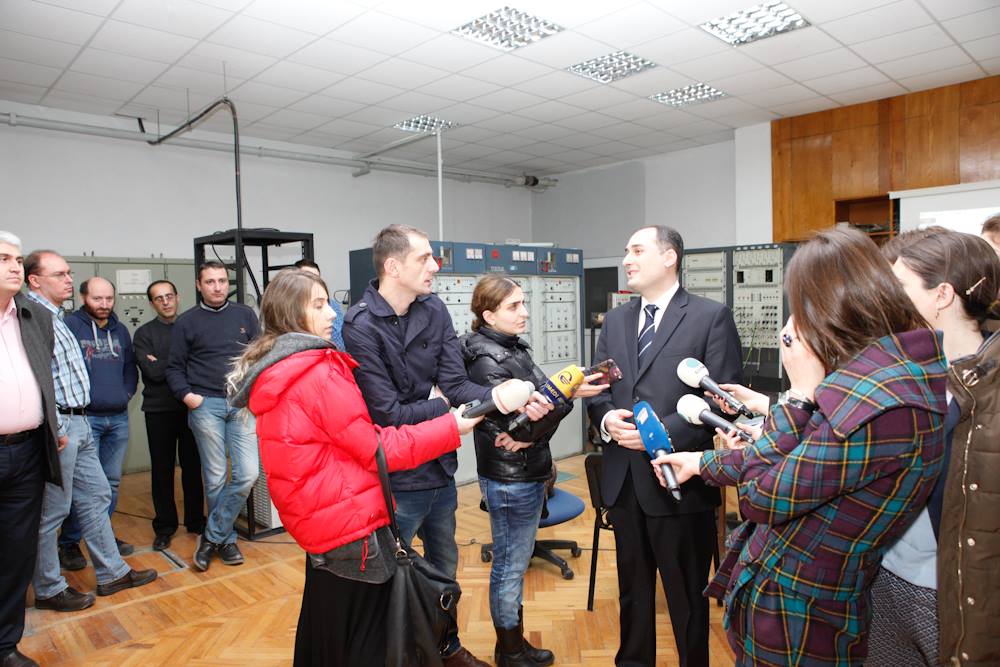Georgia prepares for digital broadcasting

Georgia is going digital.
The country’s broadcasting signals are being overhauled and televisions will soon be operated by digital signals.
Households around the country must purchase a special top-box for about 50-100 GEL to be able to receive digital signals. If households do not have a top-box by June 17, 2015, when the analogue signal will be cut off, they will no longer be able to receive a television signal.
However from now until mid-June, analogue and digital signals will work in parallel in the Georgian capital Tbilisi. Then step-by-step, the digital signals will be distributed all over the country.
From June 17, 2015, the parallel regime will stop, the analogue signal will be switched off and the whole country will be switched to digital broadcasting.
Parallel broadcasting of analogue and digital systems is due to start on March 17. Meanwhile this week, – two weeks before parallel broadcasting will begin – the country initiated a "simulcast”, a simultaneous transmission of the same program on radio and television, or on two or more channels.
Today, the First Deputy Minister of Economy and Sustainable Development Dimitri Kumsishvili attended the digital broadcasting network trial run at the TV and Radio Centre.
Kumsishvili said going digital was a large-scale project that was very important for Georgia. He said Georgia and other member countries of the International Telecommunications Union (ITU) were obligated to shift the country’s broadcasting signals to a digital system by 2015.
Kumsishvili said implementing this project showed Georgia supported media pluralism, and the digital switchover would allow more broadcasters to be able to distribute their own signals.
A joint decision by the ITU and the European Union (EU) noted European countries should be switched from the existing analogue to digital broadcasting by 2015. Georgia signed the corresponding agreement and pledged to fulfil this obligation in Geneva in 2006.

The First Deputy Minister of Economy and Sustainable Development Dimitri Kumsishvili attended the digital broadcasting network trial run at the TV and Radio Centre.
The Ministry of Economy and Sustainable Development is responsible for the digitalisation process in Georgia and designed the strategy for the switchover. The strategy noted Georgia should be switched to the DVB - T2 (Digital Video Broadcasting - Terrestrial second generation).
The strategy noted one multiplex – a group of digital television or radio channels that were mixed together for broadcast – will be owned by the state and it will ensure the spread of public broadcasting.
The second multiplex will belong to the group established by national and regional broadcasters. And the other five multiplexes will be given to a private investor company, who will be selected via competition.
In the multiplexes offered to the private company, a selection of the channels will be Free to Air while consumers will have to pay (Pay TV) for other channels.
On a side note, the private investor company will be obliged to purchase set top boxes for 500,000 socially vulnerable people, which is expected to cost €15-18 million (35-42 million GEL), stated the Ministry of Economy.
 Tweet
Tweet  Share
Share